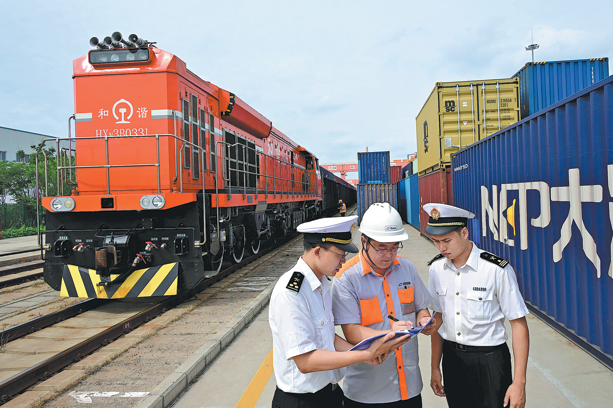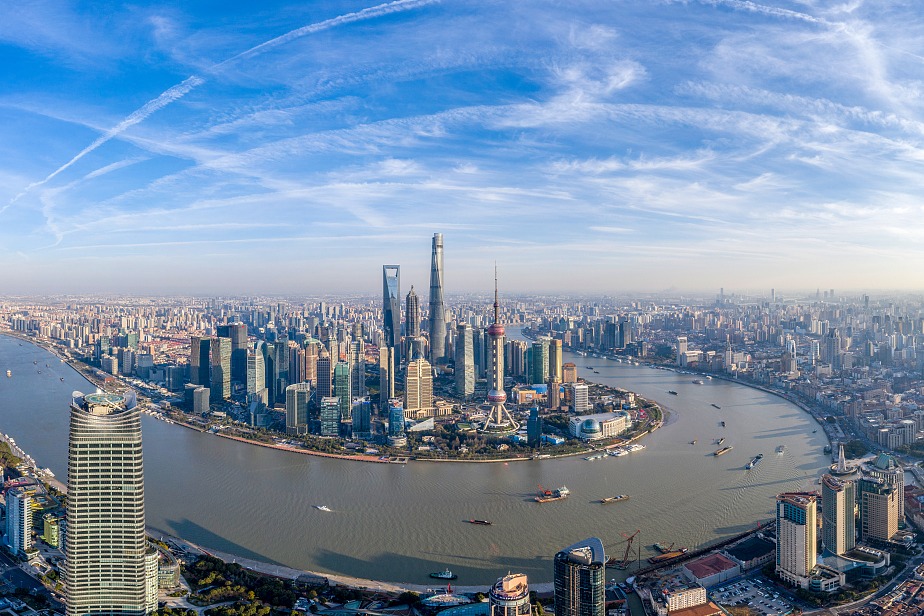Molding a better margin

| An Ethiopian worker at a steel plant owned by Eastern Steel Company in Addis Ababa. The Chinese company employs more than 100 local workers. Photos by Wang Chao / China Daily |
While China's steel manufacturers struggle, one sharp-eyed entrepreneur took a gamble on moving to Ethiopia and his prospects are looking good
Miao Wenwei, chief of Eastern Steel Company in the Ethiopian capital, Addis Ababa, says his company arrived in Africa just at the right time.
The Ethiopian government recently pledged to build housing for 1 million people over the next 10 years, and the plan is for international contractors and local subcontractors to do the job. So there will be surging demand for steel and other construction materials in the foreseeable future, Ethiopian officials say.
In China, the steel industry's fortunes are quite different.

Twenty years ago, Miao, now 42, chose metallurgy as his undergraduate major. In his parents' younger days, working for a steel company was a job many envied, for it offered stable salaries, smart uniforms and the satisfaction of contributing to the country's industrialization.
After more than 10 years working as an engineer in China's steel industry, Miao saw that steel making was no longer a welcome proposal on a mayor's desk because of over capacity and the fall in demand. For a while now, in first-tier cities, such as Beijing, Shanghai and Guangzhou, steel companies have been on a blacklist, to be moved out because of the amount of energy they use and the pollution they can cause.
Competition in China is fierce. Figures from a report issued by the China Iron and Steel Association show that the average profit of the steel industry fell to 0.13 percent last year. Among the association's 86 members, about 34 are operating in the red, and many medium to small-sized steel plants are struggling to avoid bankruptcy.
Eastern Steel thus turned to Ethiopia, where steel is in heavy demand as national infrastructure building continues apace.
There are other attractions, too. Miao jokes that he moved his factory from East China's Jiangsu province to Addis Ababa because the utility price was so tempting. "In China, every ton of water we need costs 8 yuan, but here it is less than 3 yuan."
Electricity is also cheaper. Even though the cost of electricity in China varies depending on a plant's technology, normally it exceeds 5 percent of total costs. Industrial-purpose electricity is about twice the price of public electricity, and it fluctuates during peak and off-peak periods. In Jiangsu, Miao's home province, the average price is 0.8 yuan to 1.5 yuan per kW/h.

So for Miao the main advantage of operating in Ethiopia is that it offers greater profits.
He flew to the country in September 2012 to gather information, and by last October, the molding machines in the factory were already roaring. Now the company employs 50 Chinese engineers and 108 local workers.
The low cost of labor is also a big draw for the company. In China a worker is paid 160 yuan-200 yuan a day, while in Ethiopia the rate is 20 yuan a day.
On top of all that, a power plant with capacity of 230,000 kW will come on stream this year, guaranteeing Eastern Steel a good supply of electricity.
"For a steel plant, a stable supply of power is essential to manufacturing," Miao says. "Once the power goes off for a few seconds, we lose 3 to 5 tons of steel, which means tens of thousands of yuan."
The plant's major products are rebars and wire rods, used in constructing buildings and bridges.
The annual capacity of the plant is 300,000 tons, making it the biggest steel-making company in Ethiopia. Before Eastern Steel, there were small plants that were operated by Indian, Chinese and Turkish business people, with average capacity of 20,000 tons a year.
Against them, Eastern Steel may seem like a giant, but in China the parent company, Jinfei Stainless Steel and Special Steel Company in Zhangjiagang, Jiangsu province, is not even among the A-list steel companies. While it produces 600-1,000 tons of steel a day, its close neighbor, Shagang Group, can produce 5,000 tons.
As Ethiopia does not have large iron ore reserves, Eastern Steel import billets from Ukraine.
Its customers are mostly Ethiopian subcontractors, and occasionally Chinese companies.
"We have just started operating so capacity is still limited," Miao says. "When we reach full potential I think we will attract more customers."
The quality of Eastern Steel's products meets China's level-II steel standards, Miao says, which is higher than products from small local steel workshops.
Competition in Ethiopia is much less intense than in China, Miao says. "This capacity should meet domestic needs in Ethiopia. If demand grows significantly we will consider expanding the plant."
If the local market reaches saturation point, he will consider exploring markets in neighboring countries.
Addis Ababa, Eastern Steel's new home, is a dynamic city whose economy is ready to take off. Driving around the city, yellow dust swirls in the air as almost all roads are either being repaired or being turned from dirt into concrete. Everywhere, wooden scaffolding envelops rising structures that will one day be apartment blocks.

And because the local steel industry is so weak, there are no established industrial standards. "So when we imported angle iron frames, our standard became the national standard," Miao says. "It's good to be a standard-setter."
Another thing that may temporarily protect Eastern Steel from Western products is the government's reluctance to import steel from Europe. To maintain its dollar reserves, the Ethiopian government prefers to use locally produced steel. Another obvious reason for doing this is that local steel is a lot cheaper.
Han Shengjian, deputy director of the foreign trade development bureau at the Ministry of Commerce, says relocation is a trend for Chinese companies, especially in labor-intensive and high energy-consumption industries.
"From the late 1970s there was a relocation wave from European countries, and China benefited from the first and second rounds," Han says. "Companies struggling in China because of a lack of workers or energy can consider Africa a good destination."
Contact the writers through wangchao@chinadaily.com.cn
(China Daily Africa Weekly 03/28/2014 page19)
Today's Top News
- CPC holds symposium to commemorate 110th birth anniversary of Hu Yaobang
- Economy seen on steady track
- Trade-in program likely to continue next year
- Li: SCO can play bigger role in governance
- Huangyan Island protection lifeline for coral ecosystem
- Latin America urgently needs green credit































